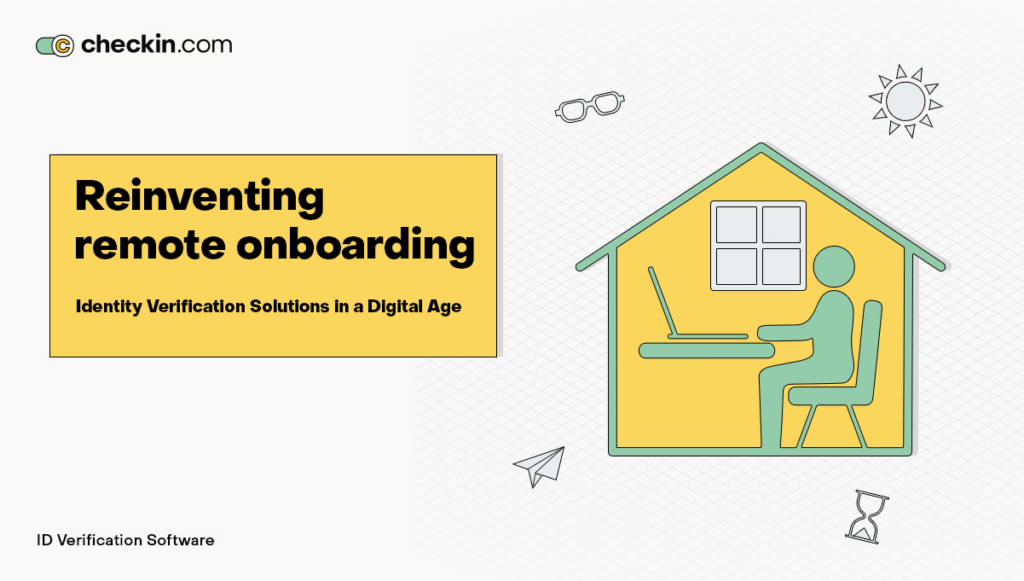In the ever-evolving business landscape, remote work has shifted from being an anomaly to becoming an established norm. This paradigm shift, while offering numerous benefits, brings its own set of challenges. One significant hurdle that surfaces is id verification service during the onboarding process of remote employees.
Thankfully, as we grapple with these challenges, a cadre of innovative service providers are extending their expertise and tools to verify the identities of remote employees, comply with regulatory requirements, and deter potential fraud.
Unravelling the Shift to Remote Work
Remote work, once considered a luxury or an exception, is now a structural component of many businesses’ operations. The reasons behind companies embracing this new work culture are manifold:
- It offers enhanced flexibility, empowering employees to balance their professional commitments with personal needs.
- It opens the door to a global talent pool, thereby increasing diversity and fostering innovation.
- It can boost employee satisfaction by eliminating stressful commutes and enabling a comfortable work environment.
Yet, with these enticing advantages come a unique set of challenges, one of which is the identity verification of new hires. This seemingly intricate problem is the puzzle piece we aim to fit today.
Identity Verification for Remote Hires
Here’s a typical situation in today’s corporate world. You’ve recently onboarded a new member to your team who is located thousands of miles away. You’ve met them virtually and interacted extensively over emails but haven’t had the opportunity to meet them in person.
So, how can you verify their identity?
This isn’t just a hypothetical question but a real-world challenge that could have significant implications, ranging from regulatory compliance to fraud prevention. Thankfully, this issue has not been overlooked, and proactive service providers are rising to the occasion to offer tangible solutions.
Service Providers Paving the Way
In this era of digital revolution, technology is often the magic wand that transforms problems into opportunities. That’s precisely what’s happening in the realm of remote identity verification.
Service providers are leveraging the power of technological advancements to formulate solutions that not only validate an employee’s identity but also address broader aspects of remote onboarding. These encompass regulatory compliance and robust safeguards against fraudulent activities, thereby providing a holistic solution to remote employee onboarding.
Demystifying the Mechanism of Identity Verification
What’s under the hood of these solutions, you ask? Well, they primarily hinge upon leading-edge technologies like biometrics and artificial intelligence.
Here’s a sneak peek into their capabilities:
- Facial recognition technology that compares a live image with an ID photo.
- Document verification and background checks that further authenticate the identity.
Picture this as an electronic handshake – a signal that you’re engaging with the right person and establishing your professional relationship on a trustworthy footing.
Reaping Regulatory and Security Rewards
The benefits of these innovative solutions stretch beyond the sphere of identity verification. They play a pivotal role in ensuring that businesses adhere to regulatory standards. Additionally, they offer robust protection against fraud – an essential feature in our increasingly virtual world.
In today’s era, where the virtue of trust is often at a premium, it’s impractical to take everything at face value. That’s where these identity verification solutions step in, offering a layer of security that’s indispensable in the landscape of remote work.
Reflecting on the Implications and Potential of Remote Onboarding
The advent of these innovative solutions isn’t just a testament to technological progress; it’s an indication of a broader transformation in the corporate world. Businesses are not just adapting to the remote work culture; they’re actively leveraging it to drive growth and efficiency. By ensuring a seamless and secure onboarding.
Wrapping Up
As we navigate the new terrain of remote work, it’s clear that innovative solutions are needed to meet emerging challenges. Identity verification is a critical piece of the remote onboarding puzzle, but thanks
[postbanner]
FAQ
Why is identity verification necessary for remote onboarding?
Identity verification ensures the person you’re hiring is who they claim to be, fulfils regulatory requirements, and protects against fraud.
How does remote identity verification work?
It uses technologies like AI and biometrics to compare a live image with an ID photo and performs document verification and background checks.
Who is providing these solutions?
Several service providers are developing innovative solutions for remote identity verification.


